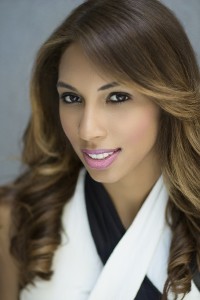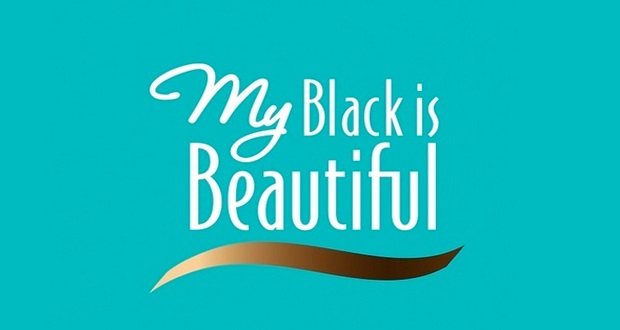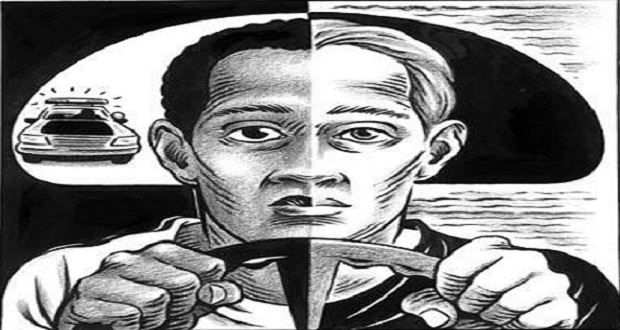
Angelina Darrisaw
For this week’s Point of View I wanted to introduce you to a close friend of mine, Angelina Darrisaw, who was recently selected as an ambassador for a national campaign, “My Black Is Beautiful.” You can learn more about the campaign here and here, but as the website says, they are “a community of black women that celebrates everything that makes them beautiful.” Each of the six ambassadors—selected among thousands— represent a distinctive set of values and experiences that make them each unique. I wanted to introduce you to Angelina because I have seen her live out privately, what she proudly professes publicly. In addition, Angelina is also an advocate for issues of organizational diversity, and especially for women of color in the workplace, so I wanted to give her a chance to share with our readers her perspective on some of these issues.
[dropshadowbox align=”center” effect=”lifted-both” width=”550px” height=”” background_color=”#ffffff” border_width=”1″ border_color=”#dddddd” ]
First of all, congratulations again! I was hoping you could share from your perspective a little bit about why the “My Black Is Beautiful” campaign is so important and what makes you excited about it personally?
Thank you! I’m very excited to be a part of this initiative. My Black is Beautiful is a community where Black women can be empowered, uplifted and surrounded by positive images and conversation that inspires us to put our beauty in action. I’m personally excited because this opportunity speaks to my values, which include sisterhood, service and encouraging other women to be their most beautiful selves.
One of the ways you’re differentiated from some of the other ambassadors is your passion for the business world. I’m curious about where your passion for professional success in yourself and others came from. What made you want to be an ambassador for women of color in organizations specifically?
My passion for business came from growing up humbly and having to create many opportunities to advance myself. That entrepreneurial spirit is appreciated in business and helped me to define a path to create more for myself. I am passionate about sharing business tools with other young women of color because I want success for women and people of color to be redefined. There are too few Ursula Burns’, Mary Barras, and Sheryl Sandbergs. Those of us who are able to navigate the corporate sector need to pay it forward and share their strategies with others, so that women and people of color in the C-Suite can stop being an anomaly.
As diversity consultants, we are always looking for ways to overcome the obstacles and challenges that people face in regards to inequalities in the workplace. What have been some of the personal challenges you’ve faced in the organizations you’ve worked in?
Earlier in my career, I think I focused too much on making connections only with people of color. To be clear, those relationships with mentors that “looked” like me have inspired and propelled me forward. But those are not the only relationships I needed, and I was lucky enough to realize that I needed to expand my view to truly find success. There is a great deal of value in learning directly from the people who are leading your organization or who look like the people who are. I was leaving opportunity on the table by thinking close-mindedly and I’m very glad to have been groomed by both white and people-of-color business leaders.
As a follow up to the previous question: what are some of your personal strategies that have helped you overcome those challenges? And what would you say to other women of color in organizations who may feel unappreciated, discriminated, or discouraged about equal opportunities?
Business really boils down to two things for me—relationships and improving the bottom line. Finding ways to build relationships and influence throughout your organization and being creative about cutting costs or growing revenue is the key strategy to any professional dilemma. To any woman of color facing difficulties, I’d say take a step back and evaluate two things. One, have you done all you can to impact the business and add value to the bottom line? Are you producing consistently strong results in your role? Two, do you have a strong network in place? Have you been broad in who you’ve connected with, both laterally and vertically? In those relationships, are you demonstrating the value you bring to the company’s bottom line? Chances are, with quality work and strong relationships in place, you’ll develop some “sponsors” who will go to bat for you and help you thrive. If you feel you’ve done all that and are still feeling stuck, it may be time to reevaluate if your organization is the right fit for you and that is completely OK. We are in a time where experiences at different organizations are more and more being perceived as value-adding.
It’s been exciting to watch you as a friend be so successful in the organizations that you’ve worked for. Are there any specific mentors or organizations that helped you along the way?
I think peers can be as critical for success as managers. I engage in a lot of peer mentoring and the feedback from professional friends who have a tendency to see me more holistically has been incredibly helpful. Additionally, most people growing in their careers face the same dilemma at some point, so a peer’s feedback on how they’ve handled a similar situation can be a good way to quickly know what will and won’t work.
I have heard you talk about the power of social media and other digital tools before, but I’m curious to know your thoughts on why new media is so important for issues of diversity today?
New media can be hugely impactful on diversity today because of how quickly it can bring attention to ignorance pretty quickly and get the discussion going. For instance, when social media slammed the Miss America contest a few years back for having picked an Indian leader, it shocked a lot of people. But those difficult to watch social media moments can be clarifying and support the fact that certain discussions still need to happen.
Additionally, smart phone technology has been critical in quickly capturing a civilian perspective on issues of police brutality or other crimes. I think we’ll start to see awareness raised in new media begin to impact policy over the long run.
One thing I’d add, from a business perspective, is that many new media companies are lacking diverse workforce and want one, so I’d encourage folks that have an aptitude to develop the skills needed by these companies to consider professional paths there.
[/dropshadowbox]
I want to thank Angelina again for her time. And I encourage you to visit and support the “My Black Is Beautiful” campaign in their various efforts.


















